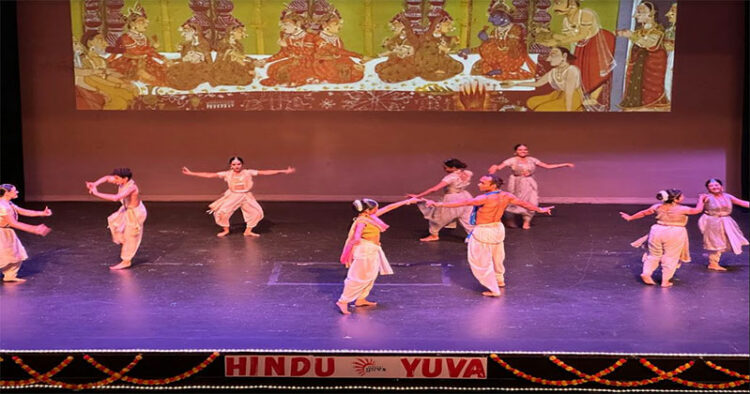The Hindu holiday Diwali celebrates several values, according to Hindu YUVA first-year representative and McCormick freshman Aastha Patel — the triumph of good over evil, the burning away of negativity, and the transition into a new year. Though Diwali is widely celebrated across South Asia, students on campus can only sometimes fully commemorate the holiday’s traditions as they may at home, Patel said. That gap in cultural experience partly inspired Hindu YUVA, a Hindu cultural youth group, to host”Wildcat Diwali Ramleela: The Story of Ram,” a musical version of the Hindu epic “Ramayana,” at Cahn Auditorium Sunday. The club commissioned Mandala South Asian Performing Arts, a Chicago-based organization, to present its production of the tale. The event also marked the second-ever official Diwali celebration at Northwestern, following a ceremony and musical performances last year.”We just really wanted there to be a place you can go to have an authentic feeling of what Diwali is like and have a sense of home,” Patel said. Diwali, or Deepawali, marks the celebration of Ram — one of Hinduism’s most worshipped deities — returning to his homeland, Ayodhya, after his great battle against the evil king of Lanka, Ravana.
According to the epic, Ram, along with his wife, Sita, and brother, Lakshman, is exiled to the forest by his father to repay a debt to Ram’s stepmother, Kaikeyi. Ravana kidnaps Sita in the woods out of lust and compels Ram to rescue her from the demon king’s palace and defeat him.McCormick senior and Hindu YUVA Co-president Sparsh Gautam said Diwali celebrations are tied to light in several ways, with the holiday often deemed as the Festival of Lights.”The day of Diwali actually falls on a new moon day,” he said. “In order for (Ram) to find his way back, many villages and kingdoms had lit it up entirely so that he knew his way back to his kingdom.”To honour the celebration of lights, McCormick third-year graduate student and event volunteer Mythreyi Ramesh said she helped decorate the auditorium with colourful garlands, diyas, or miniature oil lamps. The group also displayed posters in the lobby to teach attendees about the story of Diwali and the Ramayana.
Mandala performed the tale through instrumental music and without dialogue so that all audience members could follow the plot regardless of prior understanding of the Hindu epic. Gautam said Hindu YUVA partnered with Mandala for several reasons, but the performing arts company’s instrumental storytelling approach stood out to the club.”We don’t only want to restrict this to Hindu students celebrating the culture, but also provide a platform and an opportunity for others to be educated and aware of the significance of Diwali,” Gautam said. Before the musical, Hindu chaplain Amar Shah (Weinberg 16), University chaplain Rev. Kristen Glass Perez, and McCormick Prof. Sanjay Mehrotra introduced the audience to the celebration. They discussed the importance of the holiday and performed traditions like lighting the first diya and reciting a holy mantra. Ramesh said the Diwali performance motivated her to become more involved with Hindu YUVA. Ramesh added that the event created a sense of camaraderie and belonging across the campus community that she hopes to see more at NU.”I’m just hoping that everybody gets a taste of what it feels like to be in a festival environment that Diwali is,” Ramesh said, “and also learn more about the culture and stories that shaped many people’s childhood and even adult years.”




















Comments